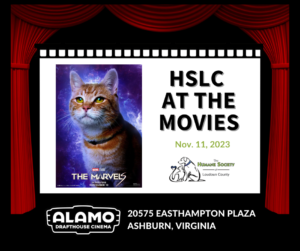
The Humane Society of Loudoun County (HSLC) will be at the Alamo Drafthouse at One Loudoun for The Marvels.
Any Marvel fan knows that Goose the “cat” steals every scene she’s in! So, we’ll be bringing some of our own scene-stealing kitties for you to meet. We’ll also be offering HSLC merch in support of our life-saving mission!
For times and tickets, visit the Alamo website.

By Lauren Puckett
You’re looking for a new kitten. After weeks of searching, you find not one, but two – an adorable pair of baby black panthers named Maui and Ohana. Both boys are quite friendly with a wonderful purr, and you can’t wait to bring them home. The only thing that gives you pause are the adoption fees: $150 per kitten.
However, once you look into it, you realize these fees are actually a pretty good deal. The Humane Society of Loudoun County (HSLC) is paying to neuter, microchip, and vaccinate these kittens. The costs for these required services vary:
- $115 to $210 for vaccinations (Daily Paws)
- $100 to $400+ for neutering (MetLife Pet Insurance)
- $45 for microchipping (Daily Paws)
But even at the low end of those ranges, it adds up to $260 per kitten. And that’s just for the healthy animals. For older, sick or injured animals, additional services–including surgery–may cost thousands. It’s no wonder that HSLC paid an average of $1,063 per foster animal in 2022. However, as a completely volunteer-run, foster-based organization, we do not incur expenses to operate or staff a physical location.
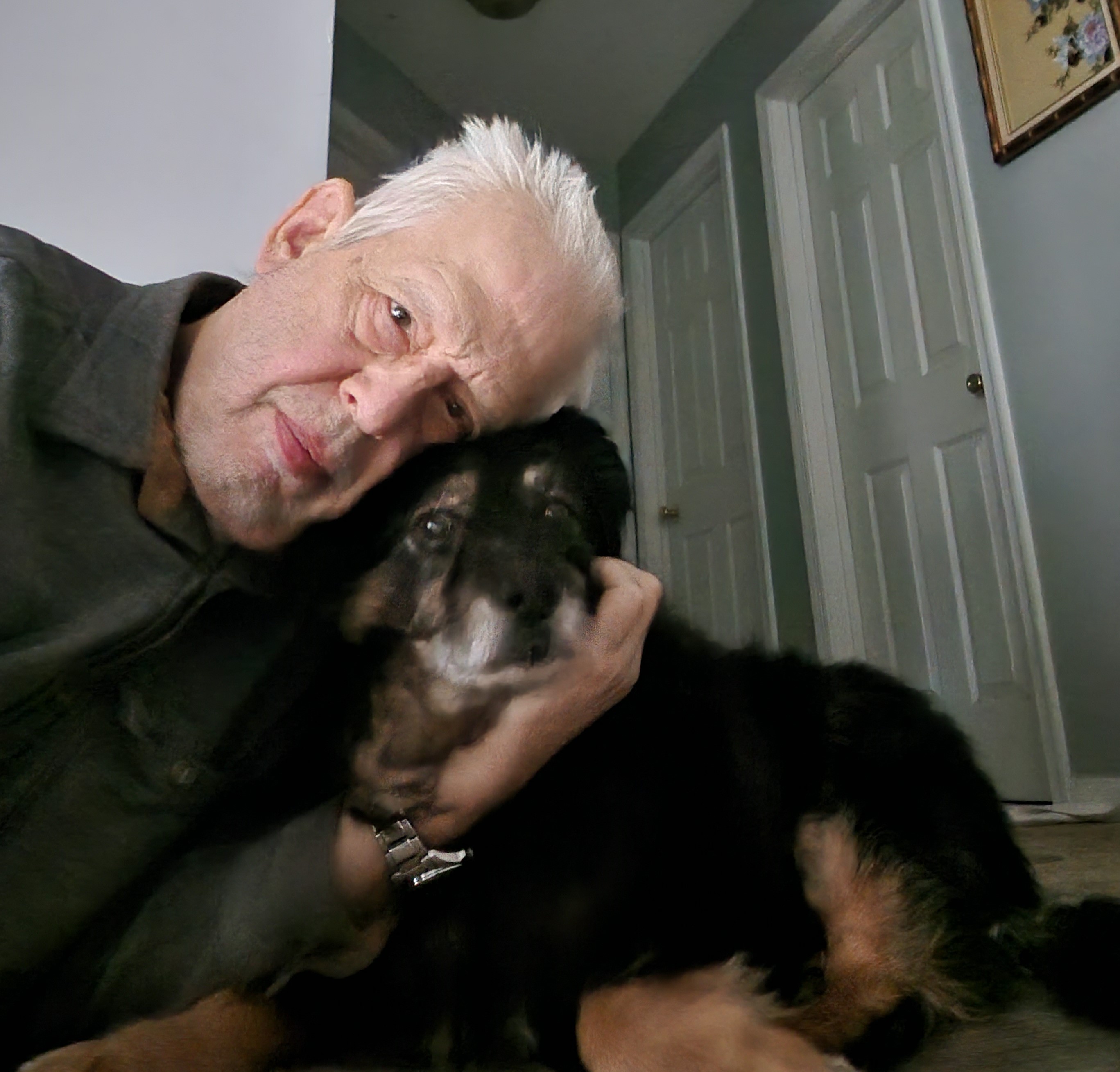
So, when you adopt from HSLC or other rescues, remember that the adoption fee is only covering a fraction of the actual expenses incurred. The remaining costs are covered by donations from caring individuals, businesses and foundations that support animal rescue.
Like other rescues, HSLC typically has higher adoption fees than local shelters because we do not receive funding from county, state or federal governments. HSLC’s adoption fees are on par with other non-profit rescues in the area.
Moreover, we’ve been able to keep our adoption fees – $150 per cat and $300 per dog – consistent for more than five years. This is due to the generosity of the community and because our veterinary partners continue to offer discounted services to HSLC even when faced with increasing costs.
To discover the many ways you can support HSLC’s life-saving mission, please visit our donate page. And, to adopt your next family member, visit our adoption page.
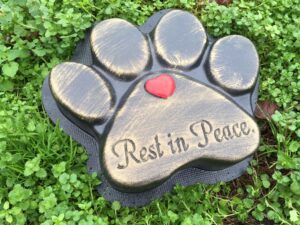
By Lauren Puckett
For most of us, losing a pet is like losing a member of the family. The sense of loss can be profound. As you go through the stages of grief, here are four ways to help you cope with the loss of your beloved companion.
1. Acknowledge your grief
It’s important to be open to your emotions, rather than ignoring them. Don’t try to “be strong” or push your sad thoughts aside. Rather, allow yourself to cry and acknowledge the loss. Work through your feelings and embrace the memories of your beloved pet. Don’t question your grief or compare it to the experience of losing a friend or relative. The American Veterinary Medical Association explains, “Your grief is normal, and the relationship you shared with your special friend needs to be mourned.”
2. Reach out to others
Seek support from your family and friends, especially those who have lost a pet themselves. You may also want to consult with your doctor or therapist. Additionally, the Humane Society of the United States recommends these resources for coping with the loss of a pet:
- The Pet Compassion Careline, which provides 24/7 support with trained grief counselors
- Lap of Love, which provides grief courses and pet loss support groups
- Everlife Support Groups, a directory of pet loss support groups by state
3. Maintain your routine
During a difficult time, you may not feel like eating or sleeping, but it’s important to take care of yourself. “Letting yourself get run down physically can make you feel worse emotionally,” explains ASPCA Pet Insurance. Maintaining your normal routine will help. If you have other pets, this is especially important for their well-being, too. Make sure to feed and walk them as usual.

4. Memorialize your pet
Do something to remember your pet, such as holding a funeral. HelpGuide.org notes, “A funeral can help you and your family members openly express your feelings. Ignore people who think it’s inappropriate to hold a funeral for a pet, and do what feels right for you.” Other ideas to memorialize your pet include:
- Spread your pet’s ashes or keep them in a special place in your home.
- Incorporate your pet’s ashes into pet cremation jewelry (try Spirit Pieces or Perfect Memorials).
- Plant a tree or shrub in honor of your pet. You can even have a memorial stone engraved and place it at the base.
- Create a memory box with your pet’s collar or favorite things.
- Share photos and memories online via social media or a specialized website (the Association for Pet Loss and Bereavement allows you to create one).
- Write a letter to your pet or the story of your last days together.
For immediate support, contact the Cornell University College of Veterinary Medicine’s Pet Loss Support Hotline at 607-218-7457, Monday through Friday, 6-9 p.m. EST and Saturday and Sunday, 12-9 pm EST.

Get ready for the 5th year of One Loudoun’s signature pet event event! The Halloween Bark Bash at One Loudoun is an outdoor, Halloween-themed festival, bringing together local pet-focused businesses, animal rescue groups, and pet owners for an exciting day of trick or treating, adoptable dogs, music, costumes, and animals galore.
The Humane Society of Loudoun County is honored to be selected again as this year’s Kite Cares partner!

For times and tickets, visit the Alamo website.
Premise: When a magical meteor crash-lands in Adventure City, it gives the PAW Patrol pups superpowers, transforming them into The MIGHTY PUPS! For Skye, the smallest member of the team, her new powers are a dream come true. But things take a turn for the worse when the pups’ arch-rival Humdinger breaks out of prison and teams up with a mad scientist to steal the superpowers for the two villains. With the fate of Adventure City hanging in the balance, the Mighty Pups have to stop the supervillains before it’s too late, and Skye will need to learn that even the smallest pup can make the biggest difference.
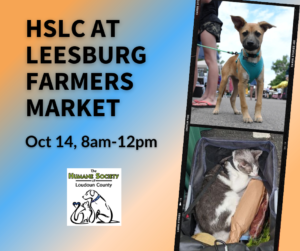
Please bring adult dog and cat food (unopened, unexpired and non-prescription) to donate to the Loudoun Pet Pantry. The pantry collects pet food to help keep companion animals in their loving homes during difficult times. In 2022, the pantry provided over 24,000 pounds of pet food to struggling families in Loudoun County. HSLC will also be collecting monetary donations to help the at-risk and homeless animals in our community.

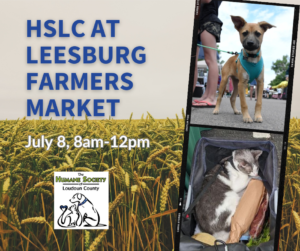


Earlier this year, the Humane Society of Loudoun County (HSLC) launched ShelterLuv thanks to the leadership of Animal Care Director, Amy Richards. We sat down with Amy to learn more about this exciting tool and how it will help HSLC keep up with the evolving needs of the community.
There is a lot of excitement surrounding the launch of ShelterLuv. What is It, and how will it benefit HSLC?
Shelterluv is a budget-friendly software program developed specifically for animal welfare organizations to help manage everything from the intake of an animal, storage of medical records, to processing adoptions.
That sounds very useful! How will it help our volunteers, fosters and adopters?
Shelterluv will hold all of the information on each animal making it easier for any volunteer to see what medical care an animal has received, when they are due for their next vaccinations, and if they are ready for adoption. Additionally, we can build profiles for each of our foster guardians to include how many animals they are comfortable with, preferred age, if they are comfortable caring for animals with special needs, and more. Each foster guardian is invited to update their profile and can also enter their availability.
There will also be an enormous benefit for our adoptions team and adopters. The team will be able to process adoptions completely online since adopters will be able to sign the adoption agreement and pay the adoption fees right from their mobile devices. Adopters will also get special offers on pet insurance from MetLife, discounts from Chewy, and an Adopterluv account with our digital adoption packet and all of their new companion animal’s medical information.
So it’s win-win-win for the humans! Are there any benefits to the animals?
The benefits to the animals come from the automation of the system. It enables our Animal Care Team to have better visibility into each of the cat or dog’s needs, reminders of vet appointments due, and access to their records. Perhaps one of the biggest benefits to the animals is that Shelterluv makes it easier to request and collect additional donations with the mobile checkout feature.

As the project lead, what did you learn during the on-boarding process that you can use going forward?
In some cases it was like learning an entirely new language. I don’t come from the tech world, so I had a lot of questions. ShelterLuv’s onboarding team is so helpful. They really held my hand and explained things as we went along, answering the questions I had about the software and terminology. This has expanded my knowledge base and will be helpful when training my teammates on the system and when working with other shelters/rescues.
Sounds like this project was out of your comfort zone but you went for it anyway. What advice would you give someone who wants to take on an important initiative even though it may be outside their wheelhouse?
Oh definitely. I would suggest for anyone to make sure they have the time and support needed for a project like this. Don’t be afraid to ask for help from the company you are working with on things you don’t understand. Be clear in your communication with your team including responsibilities and due dates. If you are only looking for feedback, make sure to be specific on what type of feedback you are looking for and from whom. And finally, be patient with yourself, and give yourself and others the grace and space to learn.
Now that the dust has settled, how are you feeling about ShelterLuv?
Really happy and proud. The adoption process is so much easier. We have some volunteers who are now more involved and invested. We can see how much it has to offer and we continue to learn exciting new things every day!
